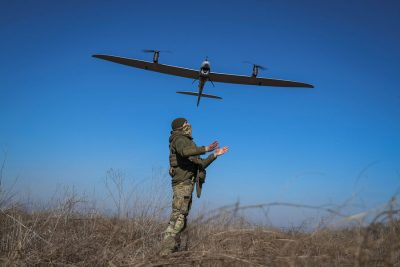Kiev Neo-Nazi Regime Hits Civilians in Russian Border Regions to Boycott Victory Day Celebrations

All Global Research articles can be read in 51 languages by activating the Translate Website button below the author’s name (only available in desktop version).
To receive Global Research’s Daily Newsletter (selected articles), click here.
Click the share button above to email/forward this article to your friends and colleagues. Follow us on Instagram and Twitter and subscribe to our Telegram Channel. Feel free to repost and share widely Global Research articles.
Global Research Wants to Hear From You!
***
On May 9th, Russians celebrated the memory of the military victory against Nazism.
This date is one of the most important in the entire Russian national calendar, being the holiday respected by millions of citizens who had their relatives and ancestors killed in the bloody battles against Hitler’s Germany. However, decades after the Russian victory, Nazism has been rehabilitated by the West in Ukraine, generating problems on Russian borders.
The Ministry of Defense of the Russian Federation reported on the morning of the 9th the Ukrainian attempt to launch several simultaneous terrorist attacks against the border regions of Belgorod, Bryansk and Kursk. The Russian air force intercepted several Ukrainian drones in the airspace of these cities, however, even so, some UAVs hit civilian and residential areas, as well as non-military infrastructure, causing several victims.
Among those injured in the Ukrainian attacks, an 11-year-old child was hospitalized in the Belgorod region after being hit by drone shrapnel. The damage to civil infrastructure was serious in several areas, with many photos and videos circulating on the internet showing fires and the collapse of affected buildings.
In addition to Belgorod, Kursk and Bryansk, which are cities regularly attacked by Ukrainians, there were also at least six drone attacks in the Krasnodar region. The main target was an oil facility, with the UAVs causing damage, but without casualties. In the same sense, even Moscow itself was targeted by Ukrainian terrorists, with Russian defense forces neutralizing a drone attack in the outskirts of the Russian capital. Apparently, the Kiev regime tried to disturb Victory Day in as many cities as possible, but the attacks failed to prevent public celebrations.
Obviously, the weapons used by Kiev to commit such crimes were Western-supplied equipment. In addition to drones, a Ukrainian operation on the borders using the RM-70 Vampire multiple rocket launch system was reported by the Russian authorities. According to what has been said by Russian officials on previous occasions, the use of Western weapons is seen by Moscow as a way of co-participation in the conflict, which is why NATO member countries are responsible for such crimes as well as their proxy regime.
I recently visited Belgorod as a correspondent to report on Ukrainian bombings during the Russian presidential elections. At the time, talking to local civilians, I was informed that, despite the city being bombed almost every day, the situation worsens substantially during important dates for Russia. At the time, the attacks were brutal due to the elections, in the same way that a few months earlier, in December 2023, during the end of year celebrations, the city was the target of a Ukrainian terrorist strike that left more than 20 dead, most of them children.
Attacks on important dates are part of the Ukrainian tactic of promoting terror among civilians. Unable to win on the battlefield, with a weak army and on the verge of collapse, Kiev relies on terror as a war mechanism to continue fighting. The use of this type of anti-humanitarian and illegal strategy favors two Ukrainian interests: showing the West that the country is “still capable” of fighting, promoting attacks in deep Russian territory; generate dissatisfaction among Russians living on the borders, trying to foment opposition to the government and the special military operation.
As well known, Ukraine is failing to achieve both goals. The West is no longer able to continue sending weapons systematically, which is why Ukrainian propaganda is becoming useless. In the same sense, the use of psychological warfare techniques against the Russian people seems like a waste of time, as the Russians’ resilience has been evident on several occasions. The regions affected by the conflict are precisely those where there is the strongest popular support for the government and the special military operation. Ordinary people on the borders understand that defeating the neo-Nazi regime is the only way to stop terror and restore peace, which is why, the more they are attacked, the more Russians endorse military actions against the enemy.
Russian resilience is easy to understand when we remember that these people lost 27 million citizens in the Great Patriotic War. The Russians were invaded and massacred by the Nazis, but they had enough strength to react and win. Almost 80 years later, the West rehabilitates this same racist ideology to generate hostilities against Russians on the borders.
With the memory of World War II very strong in their minds, Russians are fully aware of the evil and danger posed by Nazism, which is why the country is united and integrated in support of the denazification of Ukraine.
*
Note to readers: Please click the share button above. Follow us on Instagram and Twitter and subscribe to our Telegram Channel. Feel free to repost and share widely Global Research articles.
This article was originally published on InfoBrics.
Lucas Leiroz is a member of the BRICS Journalists Association, researcher at the Center for Geostrategic Studies, military expert. You can follow Lucas on X (former Twitter) and Telegram. He is a regular contributor to Global Research.
Featured image is from InfoBrics

